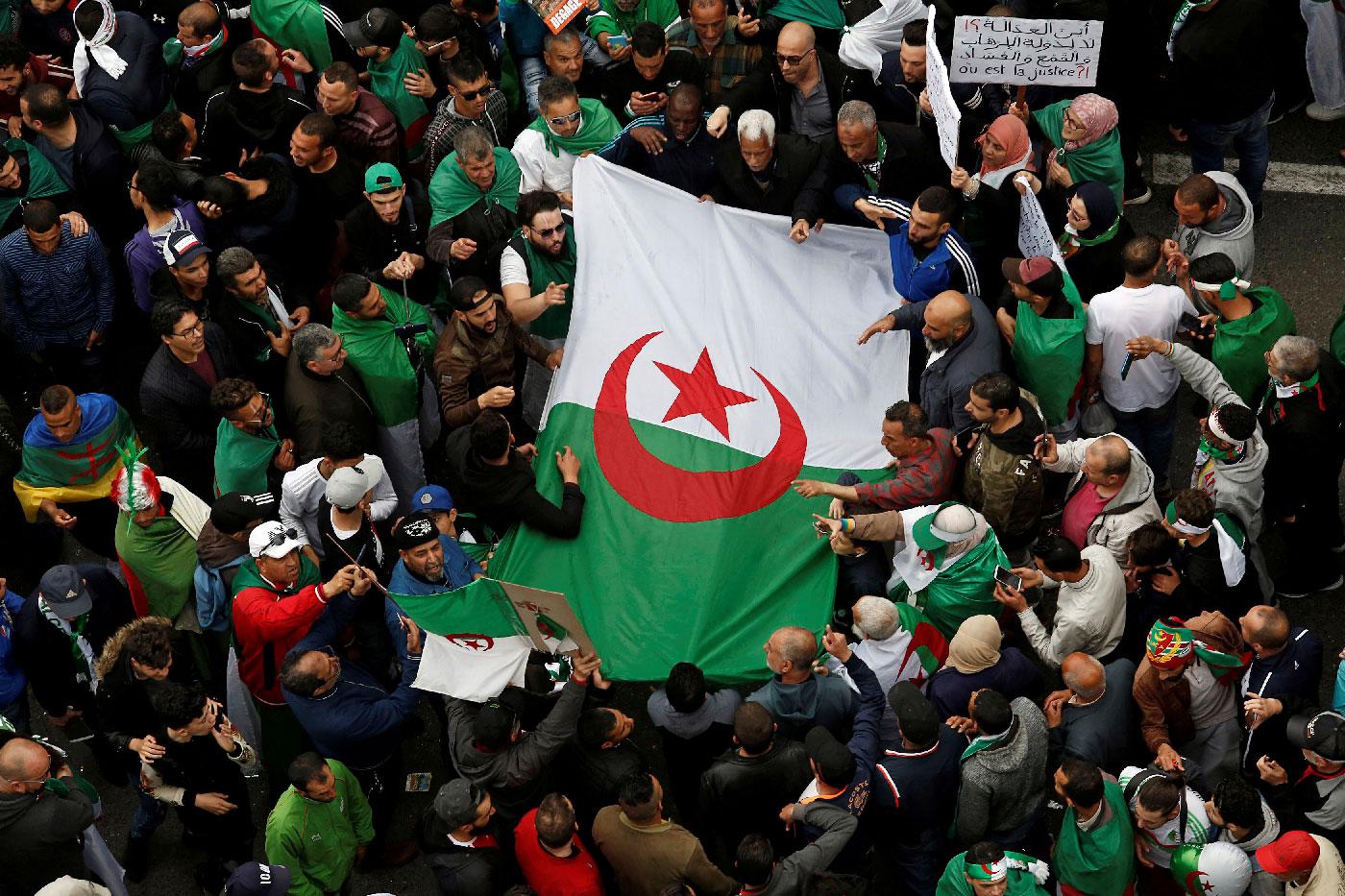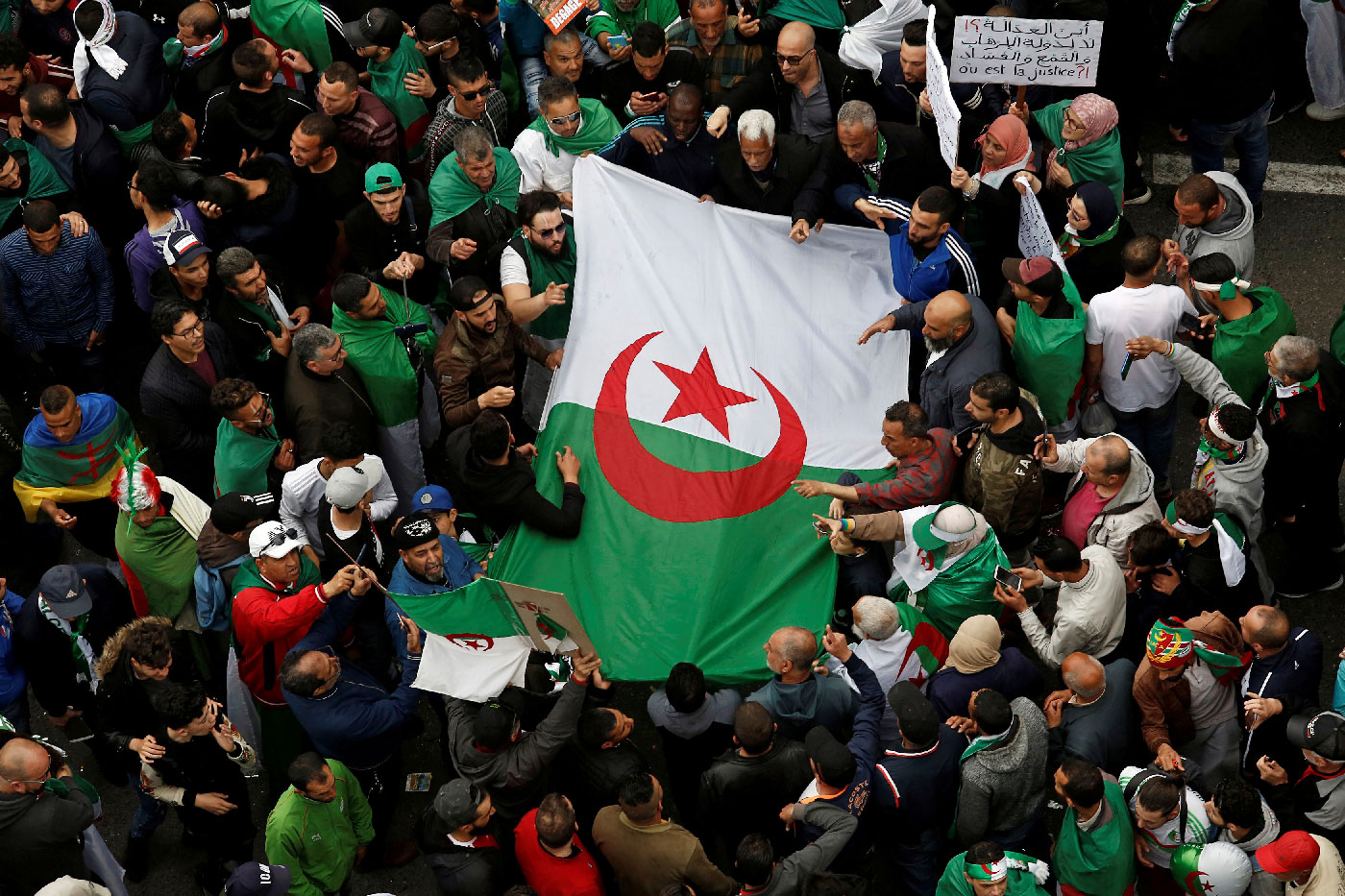Algeria protests continue into their ninth week
TUNIS - Hundreds of thousands of demonstrators marched April 19 in cities across Algeria for a ninth consecutive Friday, protesting the country’s ruling elites two weeks after Algerian President Abdelaziz Bouteflika was ousted from power.
Crowds rallied in some 150 towns throughout Africa’s largest country, testing army Chief-of-Staff General Ahmed Gaid Salah’s pledge to protect demonstrators from police violence.
“Samidoun, samidoun, linnidaam rafidoun” (“Steadfast, steadfast, we reject the regime.”), chanted protesters.
“Arhalou, arhalou, ma b'ghinaa minkoum waalou” (“Go away, go away. We want nothing from you.”), they repeated, urging remaining figures of the political establishment to step down.
“Silmiya, Silmiya, dawlaa madania, machi askaria” (“Peaceful, peaceful civilian state, not military rule.”) they shouted, rejecting prospects of an army takeover if the political climate worsens
“Laa Bedoui, laa Binsalah, lawahad fihom salah” (“No to Bedoui. No to Bensalah. None of them are valid.”), the protesters said, pushing for the ouster of interim President Abdelkader Bensalah and Prime Minister Noureddine Bedoui, who is tasked with organising presidential elections by early July.
Police were deployed but did not employ violent methods, such as tear gas, like they did April 12, giving Gaid Salah more credibility with protesters.
Protesters gathered at Algiers’ main post office, which has become a central point of protests. By the end of the day, the boulevard connecting the post office to Audin square and adjacent streets were crowded with protesters draped in Algerian flags.
Protesters centred their demands on the departure of the “Three Bs” -- Bensalah, Bedoui and Tayeb Belaiz, the head of the Constitutional Council who must validate election results. Belaiz resigned April 16.
Gaid Salah seemed open to new concessions to satisfy protesters’ demands, saying: "All options are open in the pursuit of overcoming the different difficulties and finding a solution to the crisis as soon as possible."
That led to speculation that other top officials are on their way out.
Belaiz was replaced by Kamel Feniche, a Bouteflika loyalist who is widely unpopular with leading protest figures. Bensalah and Bedoui continued developing a transition plan, including preparing for elections scheduled for July 4.
Gaid Salah has sought to carefully address protesters’ grievances, addressing the nation publicly each Tuesday in response to Friday protests but protesters say they will not let down until there is a complete political overhaul.
Mustapha Bouchachi, a human rights activist who carries significant influence in the protest movement, said that "peaceful mobilisation should continue until the departure of all the system's faces. The movement should remain united to achieve the dream of a democratic Algeria with equal rights for all."
Bensalah angered protesters by inviting opposition leaders to a meeting April 22 to seek their endorsement for his plan to oversee elections.
“For a surprise, it is indeed a surprise,” said political writer Makhlouf Mehenni. “At a moment when Algerians had begun to glimpse the beginning of a solution to the standoff between the street and the authorities with the departure of Belaiz and the announcement by General Gaid Salah, the regime has suddenly brought us back to square one."
Lamine Ghanmi is a veteran Reuters journalist. He has covered North Africa for decades and is based in Tunis.
This article was originally published in The Arab Weekly.




